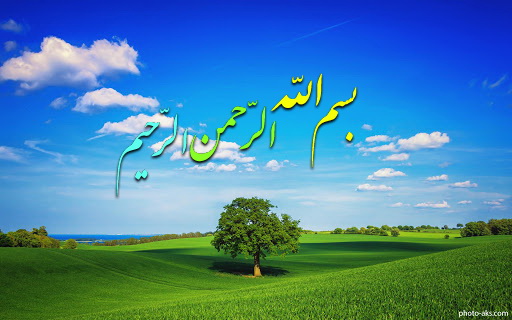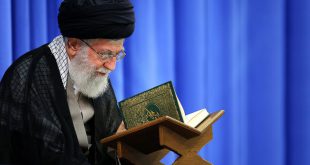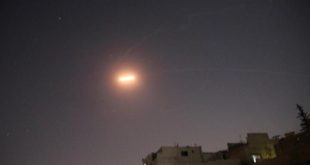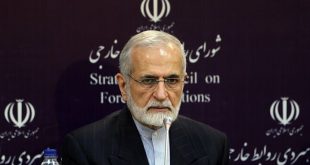By: Seyyed Ali Shahbaz
“Certainly Allah helped you at Badr, when you were abased [in the enemy’s eyes]. Thus, be wary of Allah so that you may give thanks.” (Holy Qur’an 3:123)
The blessed month of fasting has certain important events, and one such occurrence was the first armed encounter forced upon Prophet Muhammad (SAWA) by the infidel Arabs of Mecca at a place called Badr, which turned out to be a decisive victory for Muslims.
It occurred on the 17th of Ramadhan in the second year of the Hijra (following the migration of the Prophet to Medina). As is evident in the wordings of the Ayah mentioned above, the Muslims, who until then were debased and held in low esteem by the arrogantly ignorant Arab pagans, dramatically turned the tide in the battle against their heavily-armed, numerically superior, and wealthy opponents, to the extent that some began to puff with pride.
It is because of this reason God reprimands them. He exhorts them to be grateful to Him and be mindful of Divine Authority for the victory over the Arab army that was more than three times the size of the 313 poorly armed Muslims, was impossible except for Unseen Help – through angels led by Gabriel.
The Prophet did not start the fight. It was imposed upon him. In order to defend faith he had no other choice but to take to the field with his few followers outside Medina at the place called Badr. This means that defending Islamic or national interests in the face of aggression or terrorism in the month of Ramadhan is permitted by God, and is a firm refutation of the pleas of modern day aggressors and terrorists, who when the tide turns against them, call for peace and ceasefire in the blessed month of fasting. Believers should beware of such plots.
It was such a heroic epic that till this despite the passing of a millennium, four centuries and forty-one years, it is celebrated by believers as an all-time inspirational victory – far more significant than any national events in the history of transient states and empires that rise and fall, since truth is universal and not limited to geographical barriers or the ever-changing political boundaries.
The Battle of Badr draws the permanent line between faith and hypocrisy, between truth and falsehood, and between virtue and vice.
To the horror of the enemies of humanity, it placed on the centre-stage the valour on the battlefield of the Prophet’s young cousin (later son-in-law and Divinely-designated Heir), Imam Ali ibn Abi Taleb (AS), who some two years earlier had volunteered to sleep on the Prophet’s bed in Mecca so that the latter could migrate to Medina undetected by the bloodthirsty hordes surrounding the abode of Divine Revelation.
Of the 70-odd infidels who fell on the battlefield (while the rest of the 950 Arabs fled or were captured), 36 were dispatched to the bowels of hell by Imam Ali, who made short work of the most terrorizing of the pagan Arabs of Mecca, such as Otba, his son Walid, Shayba, and Hanzala ibn Abu Sufyan.
Hend, the daughter of Otba and the wife of Abu Sufyan – the archenemy of Islam and Muslims – mourned her kinsmen, and a year later at the Battle of Ohad, in brutal revenge, she had the Prophet’s uncle Hamza, ambushed by her Abyssinian slave Wahshi, who subsequently tore out the liver of the martyr and presented it to her to be chewed.
As for the exploits of Imam Ali (AS) at the Battle of Badr, the poet, Usayd bin Abi Iyyas, who witnessed the fight, has composed the following verses:
“At every meeting there is a purpose which confounds you, a strong youngster who overcomes experienced full-grown horses.
“This is the son of Fatema (bint Asad) who has destroyed you in slaughter and death with a single blow not with (wild) striking.
“He destroyed them with violent death and blows which he struck as he used his sword whose blade did not (cease) striking (down).”
An important point to note is that not all Muslims who participated in this immortal event had the same degree of faith. This was borne out by events after the Prophet’s passing away when some of the supposedly ‘privileged participants’ of Badr not just deprived the real hero of Badr – Imam Ali (AS) – of his right of political leadership of the Ummah, but ganged up with the vanquished infidels to usurp rule of the Islamic realm.
This is more evident by the appointment of Mu’awiyah, the son of the Prophet’s archenemy, Abu Sufyan, as governor of the large and important province of Shaam (present day Syria, Jordan, Lebanon, and Occupied Palestine) that enabled the former hardcore pagans, the Omayyads, to cause sedition in Muslim ranks and eventually seize the caliphate.
Thus, the Battle of Badr so decisively sifted truth from falsehood that not even the camouflage of Islam could conceal the innate animosity of the defeated elements towards Islam and Prophet Muhammad (SAWA).
The most irrefutable proof in this regard was the gloating of Abu Sufyan’s grandson, Yazid, 59 years later in 61 AH in Damascus at the sight of the severed head of the Prophet’s grandson. Despite claiming to be caliph of Muslims, the son of Mu’awiyah, could not conceal his inherent pagan beliefs, as he admitted that by killing Imam Husain (AS) at Karbala, he had avenged the death of his heathen ancestors who died while attacking the Prophet and Muslims at Badr in 2 AH.
To end the article, it would not be out of context to refer to the following verses composed on the valour of Imam Ali (AS) by the noted Arabic classical poet al-Himyari on the victory on the Battle of Badr:
“By God and His blessings do I solemnly swear;
“—For a man is answerable for what he says—
“That piety was natural to Ali, son of Abu Taleb,
“Verily he was a supernal guide,
“And His virtues surpassed the Ummah’s combined merits.
“Truthful of speech and sincerity itself in intentions,
“He was not one to be deluded by vanities.
“In the thick of battle, aflame with the flares of spear-points
“When even the gallant sought to avoid the heat
“He strolled in the midst of enemy troops
“Sword in hand, sparkling at its edges,
“Or like a lion sauntering along with his cubs
“On a hunting trip, having emerged from its den
“He was the one who was greeted that night
“By Michael, Gabriel and Israfeel,
“Each accompanied with the troops of thousand angels.
“Descended for help on that night at Badr
“They hovered above like the flocks of birds.”
 صراط عشق صراط عشق
صراط عشق صراط عشق




